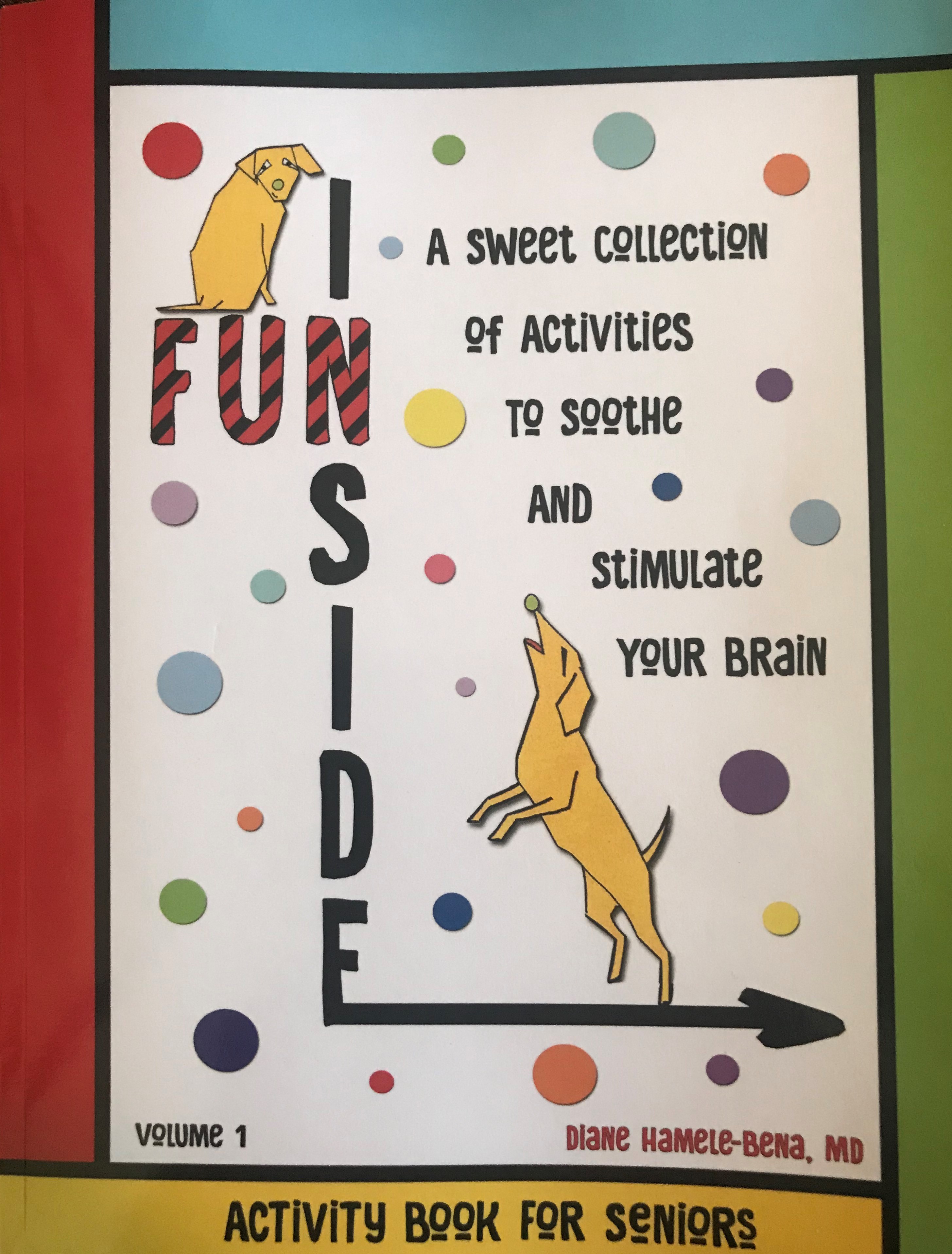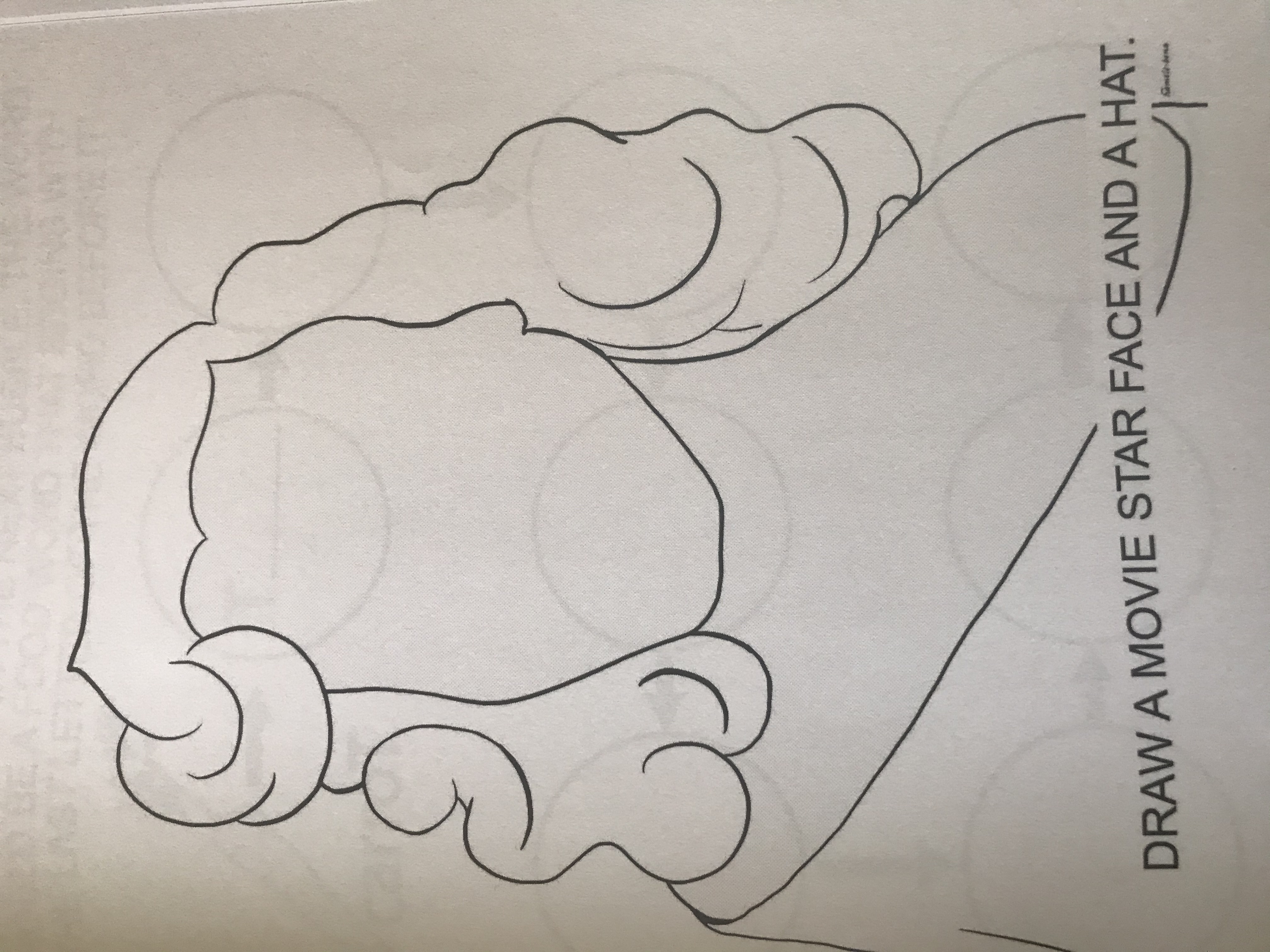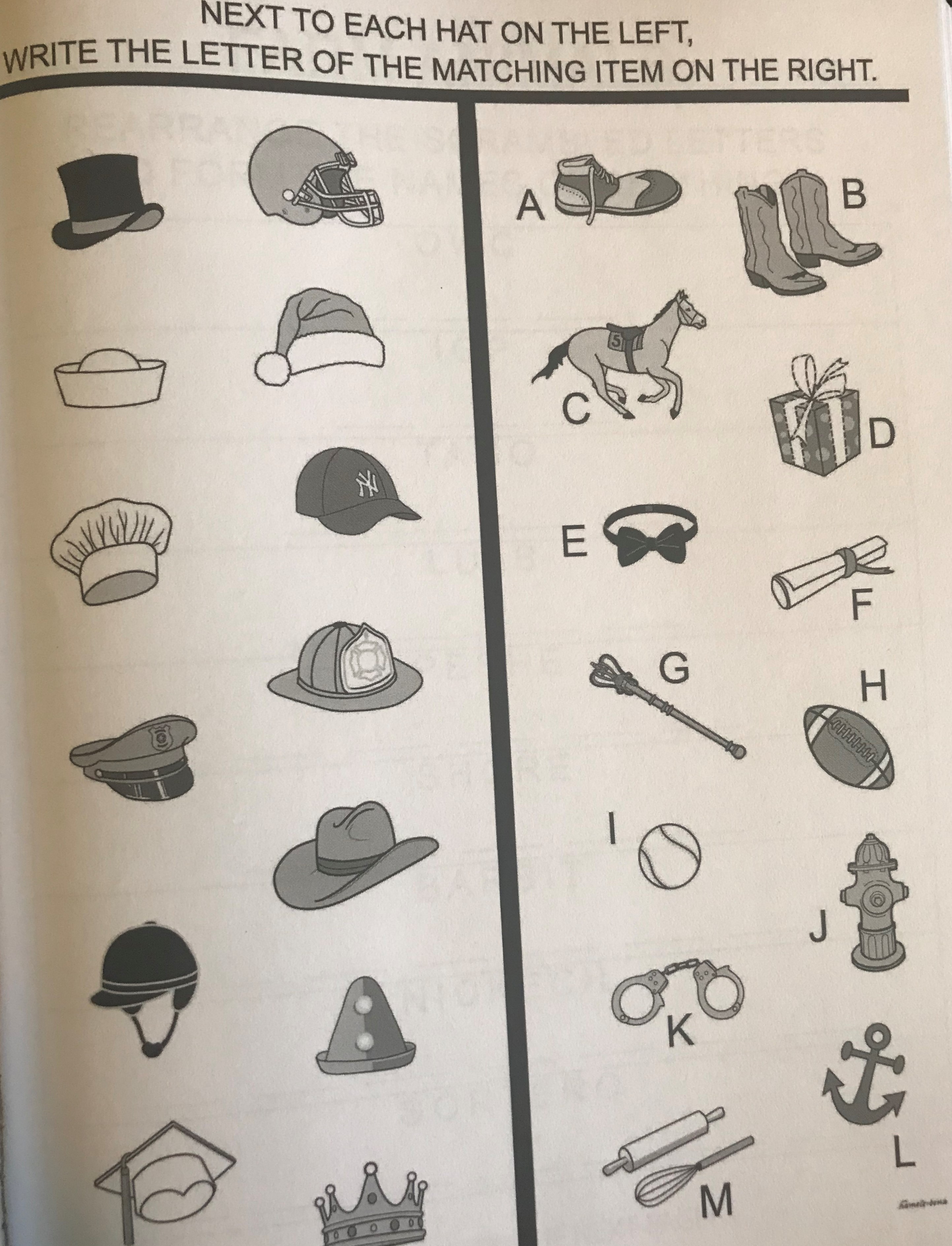"Fun Inside," New Activity Books for Seniors with MCI
Sarah OrdoverMar 4th, 2021

Fun Inside by Dr. Diane-Hamele-Bena

I was recently introduced to Dr. Diane Hamele-Bena, the author of three excellent activity books for seniors with Mild Cognitive Impairment (MCI) called “Fun Inside.” Each of the three workbooks has large print, easy to read activities such as word searches, crossword puzzles, word scrambles and coloring pages. What I like about the books is that they were written for adults in their 70's-90's. Currently, many caregivers resort to using children’s books for activities that are on the right cognitive level for someone with MCI.

Some of the activities are designed to spark conversation, for example, “Draw Something You Don’t Like.” Others are intended to promote critical thinking, and for seniors with mild cognitive decline, all of the activities are intended to be mentally stimulating, but easy enough to solve.
While the book activities can be done alone, Dr. Hamele-Bena suggests having a caring companion take the senior through the exercises together. Some of the activities in the book are intended to trigger conversations, facilitating communication between the senior and the companion/caregiver. Studies suggest that activities that cause strong intellectual stimulation and include communication elements are particularly effective tools in improving cognitive function in older adults.

I had the opportunity to ask Dr. Hamele-Bena about her work.
I have been around eldercare for nearly my entire life. As an adult, I was faced with the harsh reality of my mother’s Alzheimer’s disease. To see the woman who so unselfishly and lovingly provided care for so many now needing that same care was difficult to witness. She gradually declined into the dark abyss of dementia over the course of more than a decade; in her final years, she could not speak, walk, feed herself, or recognize any of us, and was totally dependent on the care of others. Before she died, I promised my mother that I would fight to be the voice of voiceless seniors, and to do my best to help enhance the quality of life of members of our Greatest Generation.
What is your background?
I have been a licensed physician, fellowship trained in multiple subspecialties, for almost three decades, working as a physician and associate professor at Columbia University Medical Center. My passion for eldercare, though, was ignited late in my career, and is unrelated to my medical specialties. I developed what I call the “ELDERS” model, which stands for Engage, Listen, Discuss, Excite, Respond, and Sympathize—six key actions for effectively interacting with seniors and improving their lives. My book of activities geared for seniors with mild cognitive decline, “Fun Inside,” is one example, and I also have created unique games, e.g., a card game with simple graphics, that I used with my father who, like me, loved toys and games. My hope is to share these games with others.
What data or insights do you have to support the claim that these activities will “soothe and stimulate” the brain?
Great question. As you know, cures for dementias still elude us. However, there are mounting data that suggest that certain cognitive activities, e.g., doing crossword puzzles and engaging in word games, stimulate the brain and provide some protective effect against the onset and advancement of dementia symptoms, and that cognitive function actually can be improved through such cognitive leisure interventions.1 A couple of examples: a study in 2019 found that the frequency of word puzzle use was directly related to cognitive function in adults aged 50 and older,2 and another showed that late life crossword puzzle participation, independent of education, was associated with delayed onset of memory decline in persons who developeddementia.3 A post from Harvard Medical School last year called “Protecting Against Cognitive Decline” cites the importance of active mental engagement—reading, writing, doing crossword puzzles, playing board or card games, engaging in group discussions, and playing music—in protecting against cognitive decline. Other research supports coloring therapy as an effective tool for alleviating anxiety, as it combines elements of art therapy (i.e., coloring a form) and meditation (i.e., deeply concentrating on an experience that is soothing).

Dr. Diane Hamele-Bena



